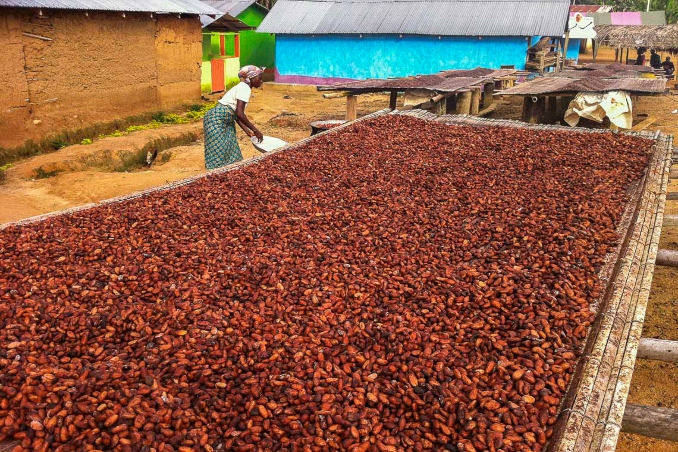Last updated on September 11th, 2021 at 07:55 am
The lifting of the European Union’s ban on the import of fruits and vegetables from Ghana has boosted big investments in modern agricultural methods by farmers in the African nation. In recent years, Ghanian farmers have worked on improving their food production with the aim of expanding their farming activities to countries across the world.
Ghana-based entomologist Dr. Maxwell Billah highlighted that Ghana lost (US)$36 million between 2015-2017 after the EU announced a ban on the export of Ghanian fruits and vegetables into the European market. Reportedly, the EU placed the ban in view of an unprecedented increase in disease and insect infestation across fruits and vegetable sectors.
Promising results of govt initiatives
According to a recent report, Ghana’s fruit and the vegetable market size has significantly expanded in recent years and continues to grow at a moderate pace with substantial growth. Notably, the Ghanian government worked with the private sectors and donor organizations to introduce modern initiatives to foster Green Revolution across its key food-producing sectors.
Related Posts
And the efforts have borne fruit as Ghanian farmers are employing different methods to boost their agricultural produce. During the lockdown period, farmers revamped and developed the market for okra to meet the demands of the European market. At the same time, farmers are growing cucumbers, tomatoes, and tender summer squash under greenhouse conditions to develop more markets.
According to a recent survey conducted by Dubai Chamber, agriculture has been identified as the most promising sector for investment in sub-Saharan Africa. Furthermore, Ghana was identified as the most favored nation for investment out of the 10 sub-Saharan destinations included in the survey.
Growth in Ghanian economy
According to a Joy Business report by Deloitte Ghana, Ghana’s economy is projected to grow by 8.9 percent in the second quarter of 2021 with the support of a rise in international trade as pandemic-induced restrictions begin to ease. It will also facilitate a surge in demand for commodity exports for Ghana to the international market. In the report, Yaw Lartey, a financial advisory partner at Deloitte Ghana, stated that the key driver of this growth was the agricultural sector which grew by about 18 percent, largely on account of the rising Crop sub-sector.
“We believe that some of the activities and programs introduced by the government are beginning to yield results, particularly for those that support the Crop sub-sector, “ he added.
The African continent sees agriculture as a prominent social and economic footprint, with more than 23 percent of sub-Saharan Africa’s GDP coming from the farming sector. In addition, over 60 percent of the sub-Saharan African population is smallholder farmers.

